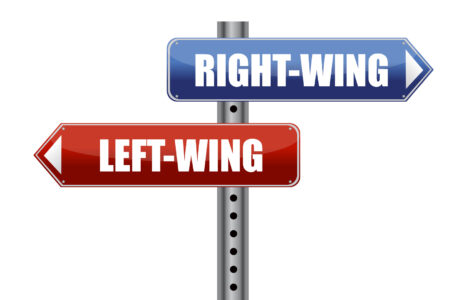
To say that ”œbig ideas” have dis- appeared from the political scene is simply an oblique way of describing what Francis Fukuyama referred to as the ”œend of history,” or what Jürgen Habermas, in a slightly less upbeat mood, described as ”œthe exhaustion of utopian energies.” Both thinkers were referring to the fact that the liberal democracy has emerged out the 20th century as the only credible form of political organization.
But the convergence extends much further than that. Not only have all of the non-democratic alternatives to our political system been discredit- ed, there has also been a considerable narrowing of opinion concerning the appropriate economic role of the state within liberal-democratic societies. The successes and failures of the welfare state in the 20th century have forced both the Left and the Right to swallow very bitter pills ”” to renounce a core component of the ideologies that at one time set them apart. As a result, all of the serious participants in the politi- cal process find themselves espousing what are essentially variations on the same basic blueprint for society.
How has this remarkable conver- gence come about? Let’s start with the Left. What the political Left has been forced to acknowledge, over the course of the 20th century, is that incentives matter. At every step of the way, the con- struction of the welfare state was criti- cized by those who said it would encourage free-riding. ”œIf you pay peo- ple not to work, then they won’t work,” they said. Similarly, they objected to the nationalization of industry on the grounds that it would encourage bad management and terrible service. ”œThere is no monopoly quite as monop- olistic as a state monopoly,” they said.
The Left responded to these objec- tions by pointing out that they ignored the role of moral incentives in economic behaviour. Not all poor people would go on welfare the moment it became more attractive than the minimum wage, they argued. There is also such a thing as the work ethic. Furthermore, they claimed that concern for the common good would be enough to minimize agency problems in the public sector.
The Left turned out to be right in the short term, but wrong in the long- term. By the late 1970s, it became clear that the welfare state was subject to ”œhazardous dynamics.” If a social pro- gram is introduced that generates per- verse incentives (such as a ”œwelfare trap”), moral constraints may be enough to prevent free-rider problems in the short term. But in the long term, social norms have a tendency to adapt in a way that aligns them with self- interest. As a result, the inefficiencies associated with welfare state programs that are not ”œincentive compatible” tend to accumulate over time.
So what about the Right? With all of the fuss about privatization and the ”œretreat” of the welfare state, it is easy to forget that the Right has also had to eat its share of humble pie. What they have been forced to acknowledge is that mar- kets fail. And when markets fail, the state is often able to deliver goods and services more efficiently than the pri- vate sector. The enforcement of proper- ty rights, for example, is essentially a public good that the state provides for its citizens, financed through taxation. It is no different in kind from the other public goods, such as roads and sewers. In both cases, it is the failure of private markets to provide these goods ”œspontaneously” that justifies state action.
The Left has often fallen prey to ”œmoral utopianism,” imagining that a modern society could ignore self-inter- est and rely entirely upon moral incentives to organize economic activity. Yet the Right has too often fallen into the exact opposite error, assuming that markets make it possible to abandon moral constraints altogether, and rely entirely upon self-interest. This sort of naïve ”œmarket utopianism” finds its clearest expression in the work of Friedrich Hayek and Ayn Rand.
The problem is that self-interest works brilliantly when property rights can be clearly defined and cheaply enforced. Markets are well-suited for medium-sized dry goods. But when it comes to more intangible assets, such as knowledge and ideas, or areas where it is more difficult to demarcate boundaries, such as the ocean or the atmosphere, the cost of imposing a regime of property rights is prohibitively high. As a result, it may be more efficient for the visible hand of the state to take over and impose a transaction upon interested parties, or modify the terms of their transactions through either taxation or regulation.
Again, market failures can often be ignored in the short term, as one can see throughout the developing world. But environmental problems and nui- sance goods have a tendency to accu- mulate. Furthermore, as the market succeeds in delivering more and more private goods, the unmet demand for public goods acquires greater relative urgency. Thus the very success of the market economy creates the demand for an ever-expanding welfare state.
So where does this leave us? Certainly it leaves us with a paucity of ”œbig ideas.” Should we lament this fact? Only if we think that the size of an idea is more important than its wisdom.







